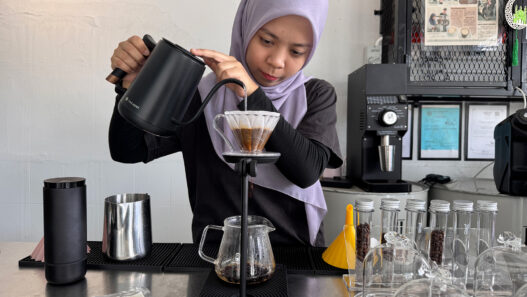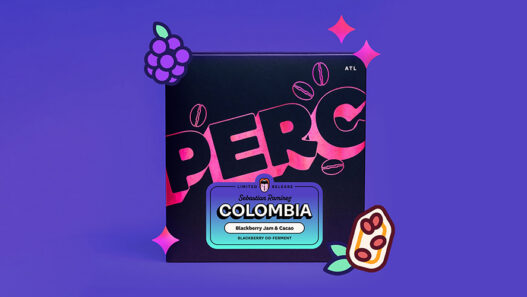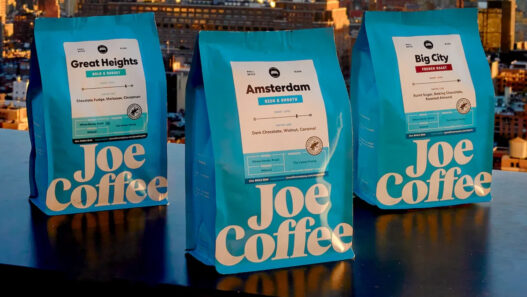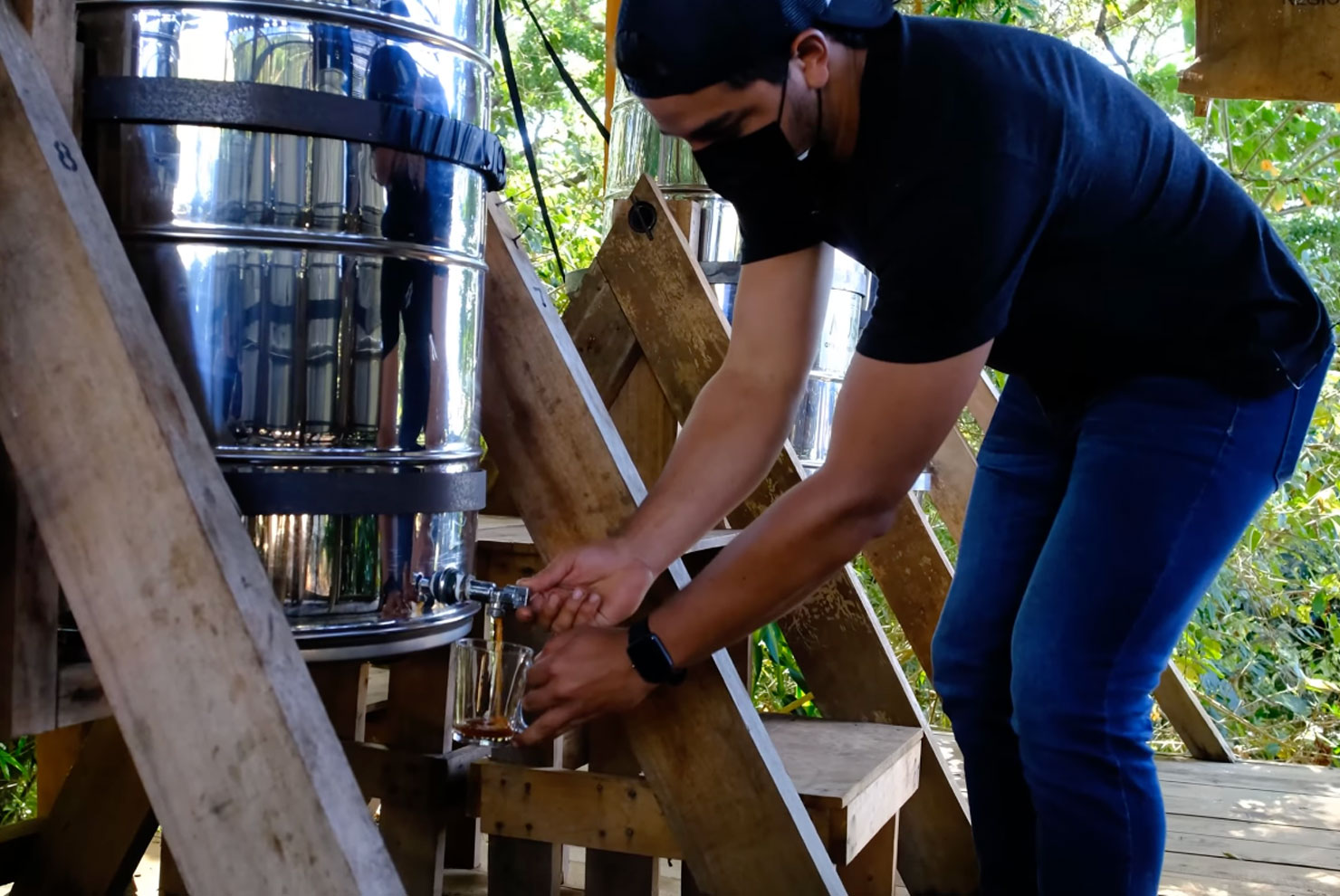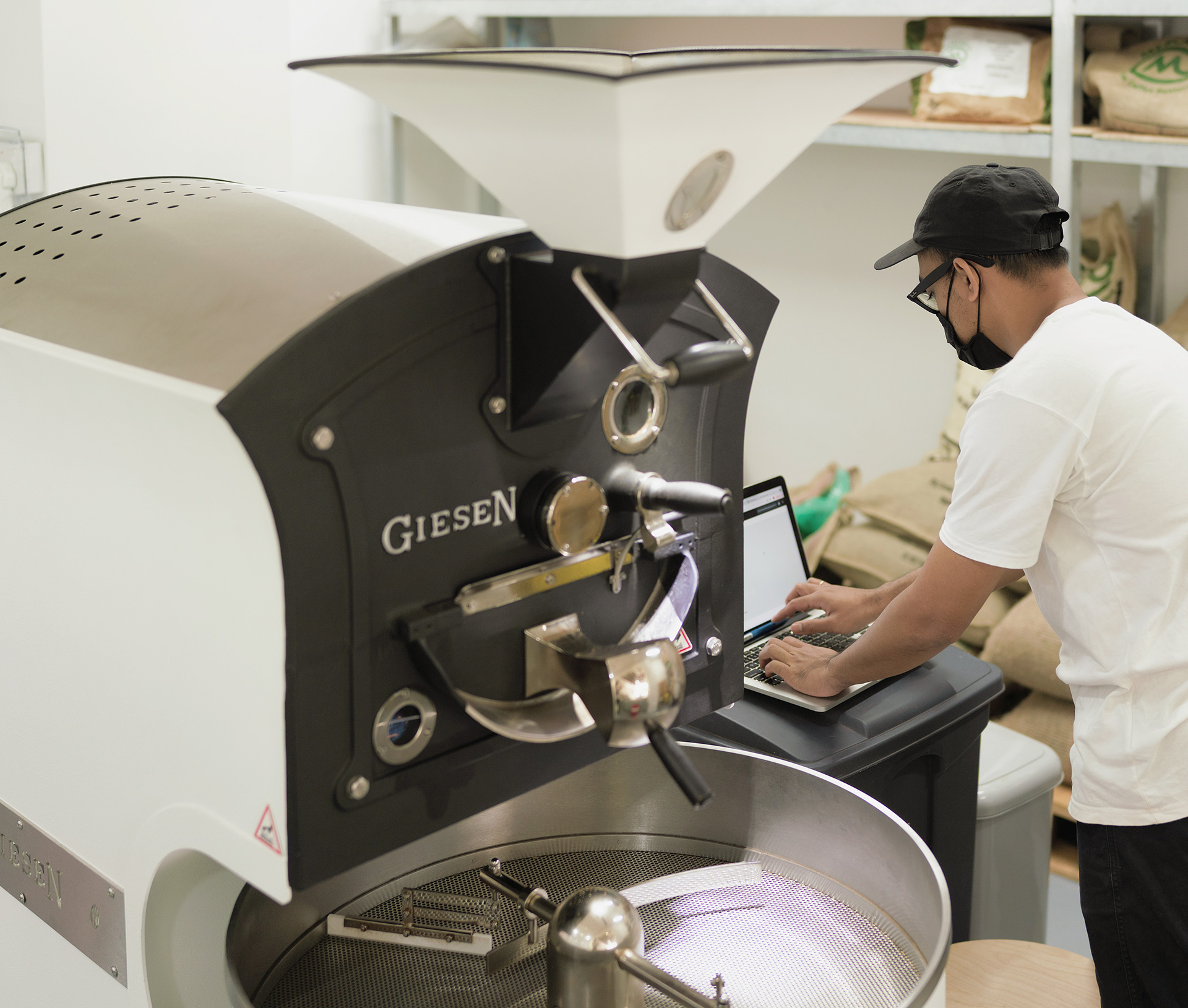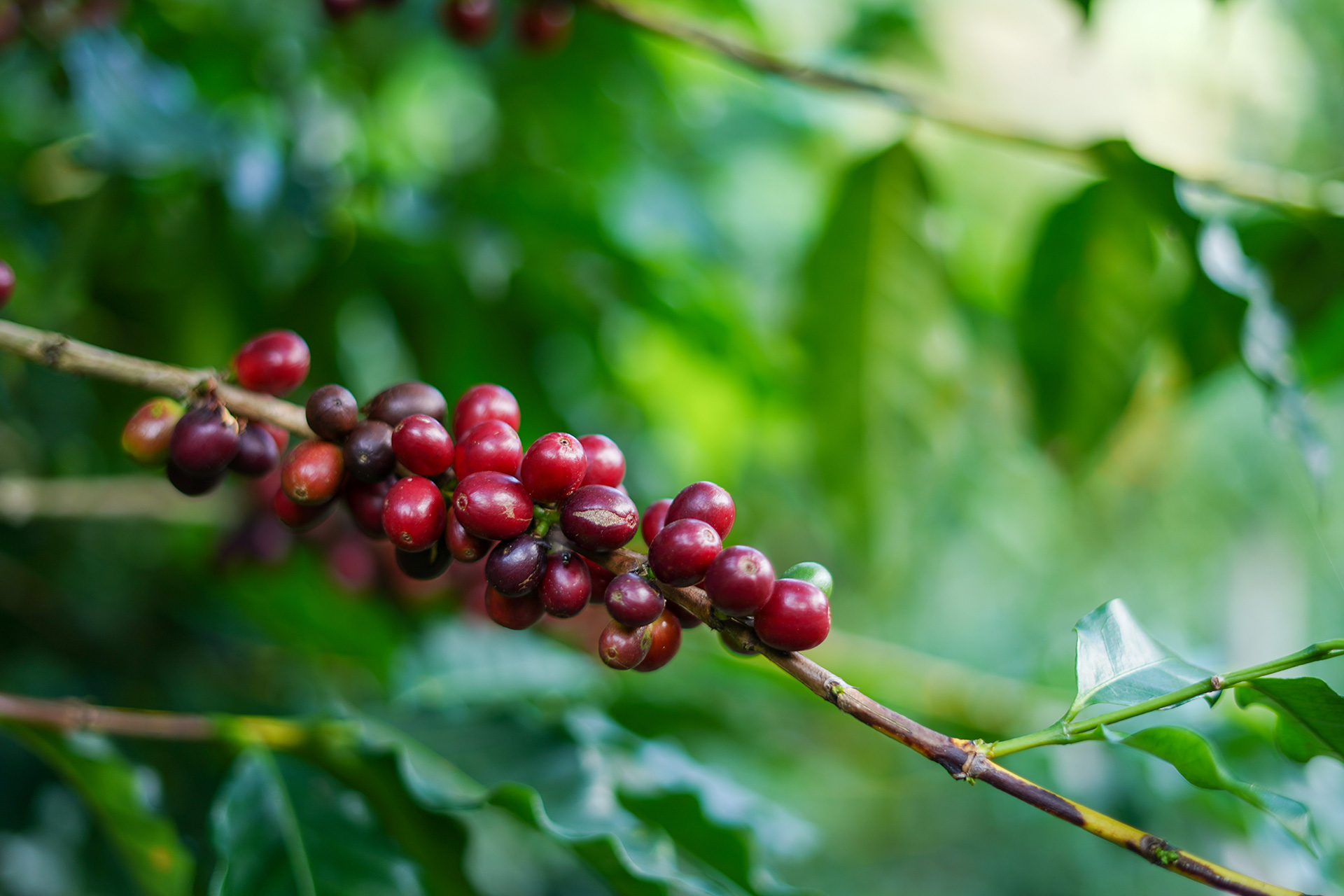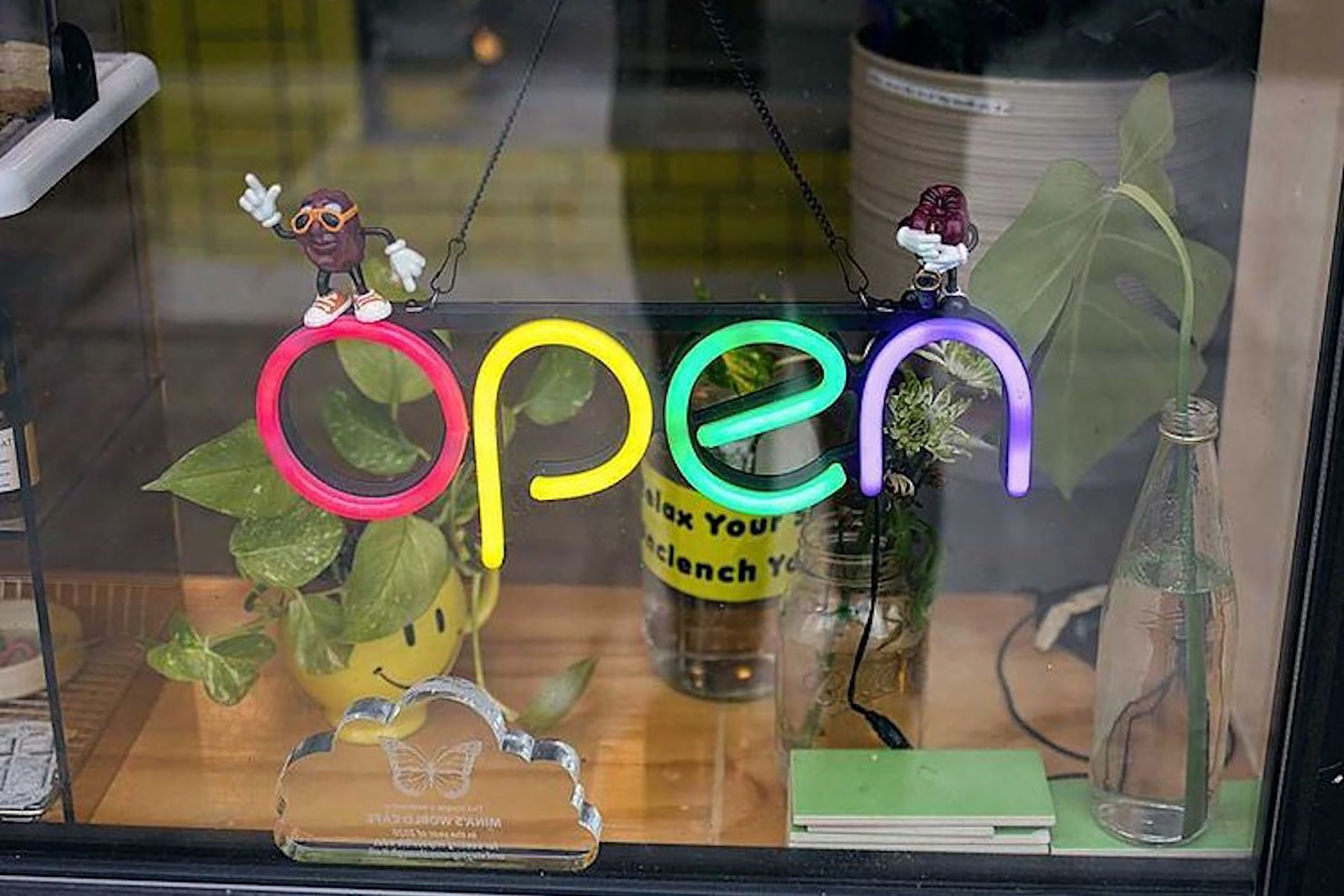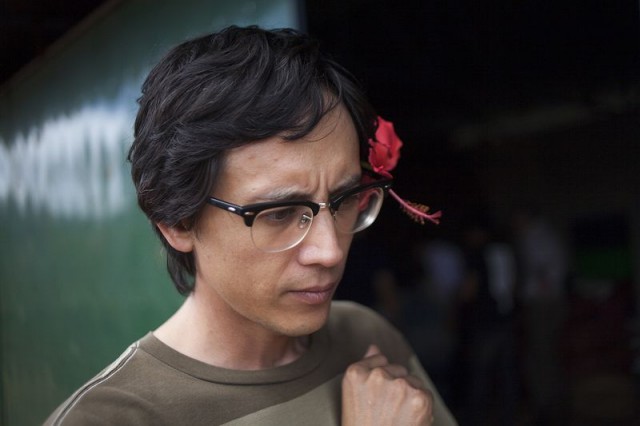
Sprudge.com first met Will Frith back in January 2012, when he was competing in the Brewers Cup portion of that year’s Northwest Regional Barista Championship on behalf of Olympia Coffee Roasting Company. But his presence in our archives goes all the way back to April 2010 (in our early, funny days), in the comments section attached to this bit of kopi luwak mockery. Around the holidays last year, Mr. Frith moved from Olympia, Washington to Vietnam, with the express purpose of focusing on and developing that country’s high quality coffee sector.
Though Vietnam is the second highest producing coffee country in the world – outgrowing Colombia and Ethiopia combined, according to Bloomberg – very little of the coffee grown there is high quality, and 97% of the country’s output is robusta. Still, as Mr. Frith tells us in the interview below, he dreamed there “must surely be some amount of good coffee hidden” in Vietnam’s massive annual harvest. Is Vietnam a growing region with vast untapped potential for quality? Can a self-described coffee “nerd” with serious credentials help bring specialty-grade Vietnamese coffees to the international market? We don’t know – the future is unknowable – but if ever there were a nerd for the job, it’s Will Frith in Vietnam. Read on.
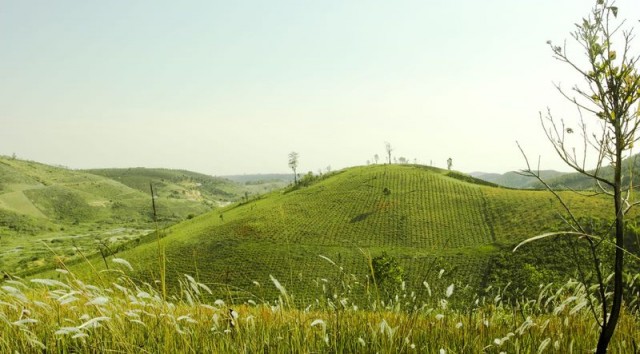
Tell us a little background about yourself – where did you work in coffee in the US before moving to Vietnam? How many times have you competed in coffee competitions?
My first coffee job was in 2002 behind the bar at a cafe called Mod Coffeehouse in Galveston, Texas. I really didn’t know anything about coffee back then, but loved the community that formed around the coffeehouse. It became the hub for a lot of good stuff happening in town, and I made a lot of good friends. I moved from there to Vietnam (the first time) in mid-2004, where I worked as an English teacher. I moved to Olympia, Washington in 2007. There I got a job in Batdorf & Bronson‘s production department, which was my introduction to roasting, green coffee and the concept of “Specialty Coffee.” They really encouraged my curiosity and tolerated my endless stream of questions about everything from roasting to brewing to machines and everything else… I finally landed a position in their Training & Education department, where the coffee rabbit hole got ever deeper (as it continues to do). I grew obsessed with roasting and green coffee, which happened to be at the same time Olympia Coffee was hiring for a production roaster. I was heartbroken to leave Batdorf, a great company loaded with great people who taught me a lot, but the opportunity was too good to resist. It proved to be a great move, and I felt honored to be a part of the Olympia Coffee team, working under the careful eye of Oliver Stormshak, who was my original trainer at Batdorf.
I had always preferred to stay on the judging side of competitions (who doesn’t love being served the best coffees by the best baristas?). The first Brewer’s Cup happened to be the Northwest regionals in 2011, and Nick Cho [who helped organize the initial Brewers Cup events – Ed.] asked me if I was going to compete. The conversation went something like this:
Mr. Cho: “Don’t worry, it’s just for fun.” (slight nudge toward the competition area)
Mr. Frith: “Ok, I guess…”
I came in 3rd that year, with a Clever Dripper and a Colombian coffee from Batdorf, and was thrilled to even make it to the finals. The next regional competition cycle, I had already moved over to Olympia Coffee and was encouraging coworkers to compete. That year, 4 out of the 6 finalists were from Olympia Coffee, which was a great moment to be a part of. I placed 4th that year, with a Colombian coffee and a cloth-filtered cupping style brew. I competed in the National Brewer’s Cup in 2012 as well, but didn’t place, though it was – as always – a great experience. Highly recommended activity.
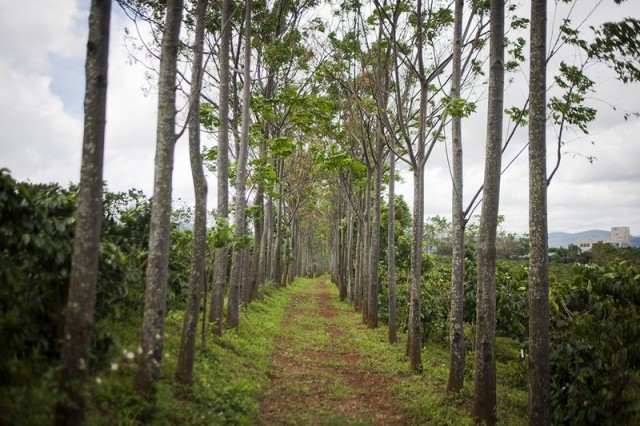
When did you move?
I moved to Vietnam on January 15, 2013.
Why did you move?
Part of it is to do with my mom being Vietnamese, a roots and heritage sort of thing, as well as my affinity for the place. Since moving back to the US from Vietnam the first time in late 2006, I had always dreamed of going back with some sort of purpose. Additionally, the more I learned about coffee, the more I learned that coffee from Vietnam was (justifiably) perceived to be the bottom of the barrel. I began to think that there must surely be some amount of good coffee hidden in all of that volume, and couldn’t stop thinking about the potential. The more research I did, the more I learned just how lofty my ideas about finding good Vietnamese arabica were. I was determined to find something, so I scoured print and online resources to see what I could find about growing conditions, regions, cultural practice around cultivation and industry data.
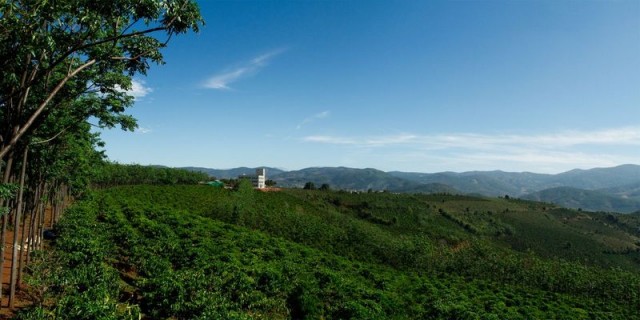
What have you been up to since moving?
I spent about 3 months in Dalat (Lam Dong Province) getting to know the area and meeting coffee people, just trying to taste and learn as much as I can. There, I met Michael Gomez Wood, a coffee agronomy specialist, and we’ve been dreaming up projects, visiting farms, experimenting with and cupping coffees together ever since. In March, I attended the Coffee Outlook Conference in Dak Lak Province, where folks met to talk about issues affecting the coffee industry in Vietnam. The day-long talk lent me valuable perspective. I moved to Ho Chi Minh City at the end of April, just in time to be a sensory judge for the semiannual Vietnam Barista Championship. There, I met quite a few more coffee folks operating in the region and started to get ideas about a coffee community. For the past 2 months, I’ve been consulting and training full-time for cafe operators, roasters and enthusiasts.
Currently, I’m working with a coffee friend here to build a cupping and training lab to lend some legitimacy and focus to my efforts. We’re aiming to meet SCAA lab standards and hope to eventually have it certified. I’d love to host a Q-grader course there in the future (then I could finally take the course myself!).
I’m also working with a few coffee people to create a reference/resource website for Vietnamese coffee, which will feature all content in both English and Vietnamese. We’re working with the name vietnamscoffee.com, and it will begin as a publicly-viewable forum between our group of quality-focused producers, processors, exporters, roasters and nerds like me. I’m also gearing up to release my own brand of tiny-batch coffees, to sell among a few friends and local customers, based on whatever selections have my attention that week.
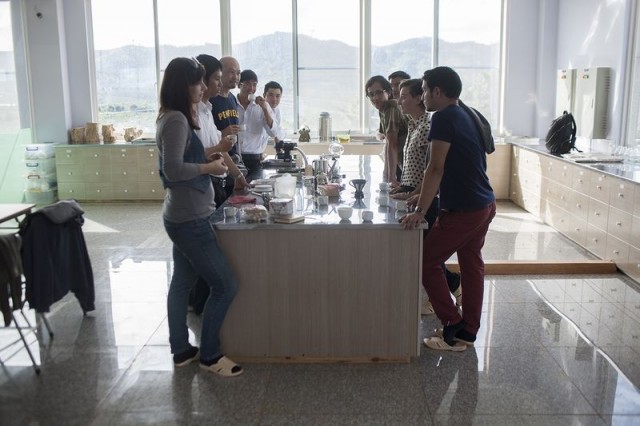
In a recent Reuters article the news organization painted a pretty dire picture of the coffee export situation in Vietnam. What’s the deal?
In the case of the company featured in the article, they just simply over-diversified. They lost focus and tried to have a hand in every single aspect of the industry. They are wildly successful in their core product, the instant coffee division, which had been growing every year without slowing down. But they also have a processing mills, a processing equipment division, roasting equipment division, and about 12 different consumer product divisions, along with the hundreds of coffee plantations they hold. None of these other divisions had very strong markets, which dragged down the overall performance of the company. I won’t go too much into greed and CEO-syndrome (taking bonuses and pay increases amid poor corporate performance), but I’m sure that played a bit into it as well.
From a macroeconomic perspective, this can very easily become a disaster for Vietnam’s coffee industry, with price implications for the entire export community. It’s also par for the course in this country right now, as investment ramped up during the last ten or so years in pretty much every sector, and now there’s a slowing down that’s freaking everyone out.
From my perspective, which is primarily focused on smallholder farmers, independent roaster/retailers, and the local industry here in Saigon, it seems like a new orientation toward specialty coffee may actually be possible, especially as the “unlimited growth and volume” paradigm loses its influence over the local market. Whereas during boom times, no one wanted to slow down, contract, separate lots, or pay attention to quality instead of volume, now I have the attention of some farmers, retailers and exporters who want to focus more on quality in the hopes of beating this price downturn, through a value-added approach. There are a lot of reasons for Vietnam to transition to quality-oriented markets right now, a big one being the long-term economic viability of the country’s industry. The implications of climate change, the poverty of farmers, failure of large companies, and the depletion of soil by monoculture with chemical inputs are all things that need to be addressed in addition to what’s happening to Vietnam’s coffee in a global context. The value-added approach may be the only sustainable way to continue.
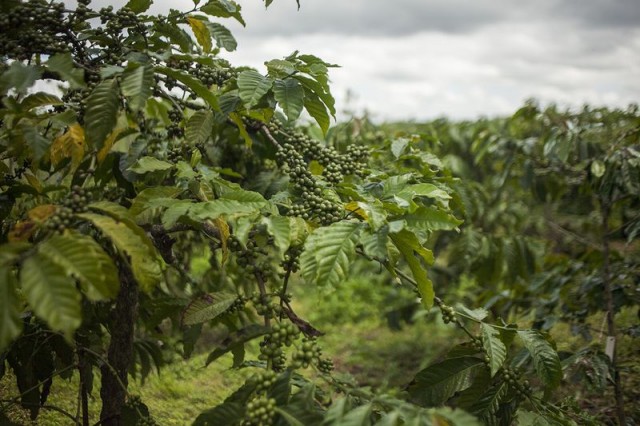
How did your time working in the US specialty market inform your work in Vietnam?
All of it. What I learned working in the US specialty market informed everything I’ve done since the early days at Batdorf. Once I had a taste of good coffee, it was all over. I had to taste more, learn more, do more. Specialty coffee really became a template for life. Coffee contains everything in the world – agriculture, taste, industrial production, economics, environment, community, development, sustainability, you-name-it.
More important than lofty concepts, though, is the way specialty coffee people interact. It’s a community, in every sense of the word. The way information is shared and tested, re-shared and reshaped, is truly inspiring. I’ve never heard of competitors in any industry being so open and helpful with one another. This mode of sharing leads to constant improvement, empowerment and, of course, hope for the future.
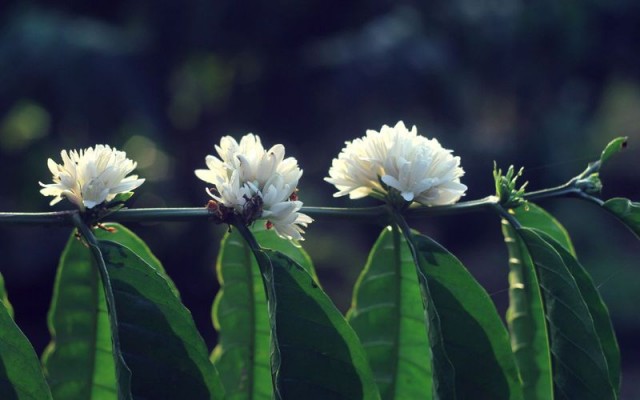
Look into the future – how long until the world’s great specialty coffee roasters are serving Vietnamese coffee? Will that ever happen?
Eventually, sure. I’ve cupped a local Bourbon at 81.5, and that’s with existing processing and storage issues, which are possible to fix before the next harvest. The best processed Catimor I’ve found in Dalat cups at an 82. There are incremental changes that can happen at every link in the chain, and luckily I’ve found a group of collaborators willing to make it happen – expatriates and locals, and a group of coffee friends in the States who help me to stay calibrated. Will it take two, three years? Ten? I can’t be sure yet, but getting a specialty grade product on the international market is why I came here in the first place, so that’s what I’ll be working on until it happens.
For now, my focus is on developing a demand for high-quality coffee in the local market. I’m working with inspiring people – cafe owners and roasters who are passionate about quality and want badly to see a specialty scene here. Hopefully the demand coming from Vietnamese baristas, roasters, and cafe owners will help to buoy the farmers while we try to figure out how to find export markets for their eventually higher quality coffees.
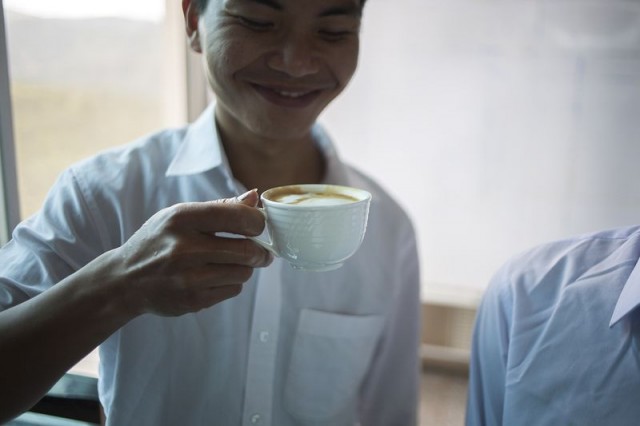
Photography by Josh Breidenbach of Rice Creative, Ho Chi Minh City.




